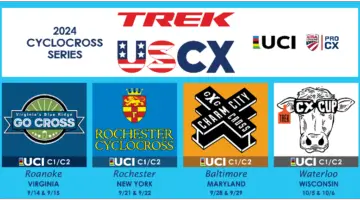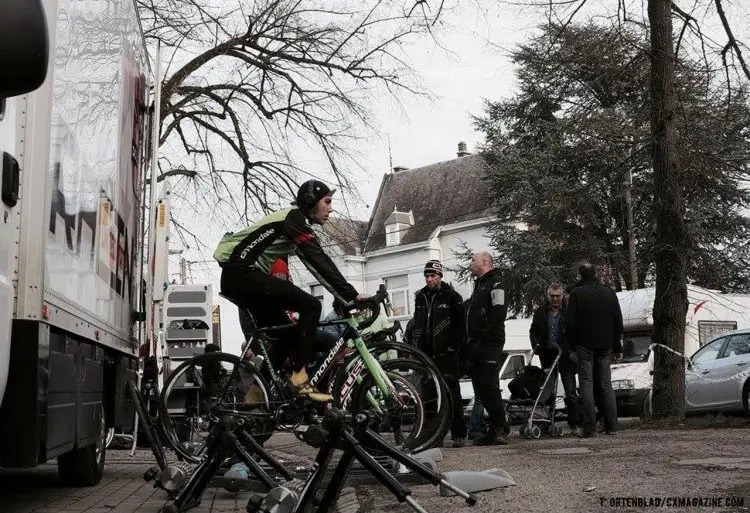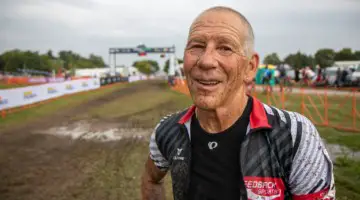I can just about tell you when the weather breaks every spring based solely on my email inbox. It was a little later in coming to the East Coast this year, but the daffodils come up right around the time my inbox overflows with coaching inquiries.
I love all God’s children, especially if their checks clear, but I have certainly come to realize that like any relationship, a coaching relationship is primarily about fit. If we can work together that’s great, but primarily I want you to be happy where you are.
So let’s talk about how to hire a coach.
Why Hire a Coach?
Why would you hire a coach? Four reasons, primarily.
Accountability is the big one. Maybe you have three kids and a busy job. Maybe you have to train at 5:30 a.m or 10:30 p.m. to get it in at all. You probably have some challenge in your life in just getting on the bike.
But if you have to hand me a pile of money to give you a program and tell me how it went after the workout, you’re probably going to be a lot more motivated to work out. Having someone to answer to is extremely effective in getting people to do things and stick with them. If that’s you, think about a coach.
Reason two is guidance. You are in one place, want to be in another but don’t know how to get there. Maybe you want to cat up or win your local series or maybe finish a 100 mile mountain bike race. Hiring a coach to get you over, around or through whatever is keeping you from your goal is a big step in the right direction.
I recommend finding a coach who has expertise in what you want to do and has a track record of coaching athletes in that sport. That might even mean moving coaches from summer to fall. I pick up a lot of cyclocross business for that reason. Find someone who has traveled your path a lot so they can guide you on it too.
Reason three is having a psychologist. For me it’s the most fun part of the season, but it takes a while to get there. January through August I have one of the above hats on, primarily.
Once ’cross season starts I am almost entirely wearing my psychologist hat. Results didn’t go the way you want, maybe you’re burned out or you are nervous before some big races. Primarily you need someone to talk to and sound things out with. In life there are so few people really in your corner, but this is one of those times you have someone in yours.
I like this aspect of coaching because it’s more challenging (for me) and hopefully I can give you a pep talk and you feel better about yourself. Honestly a lot of this consists of letting the client talk and then telling them the answer they’ve arrived at is actually correct. Most people know what’s right for them, but they may need some help believing that and acting on it.
The fourth is off-loading. Maybe you know a bit about programming but not a lot. Maybe you’re very good at following directions and trusting the process. In that case you’re mainly paying a coach to tell you what to do so you don’t have to think about it. Your time is worth money, and maybe you don’t have a lot of time to read up on and think about what you should be doing every day. Let a coach handle all that for you. All you have to do is get on the bike and execute.
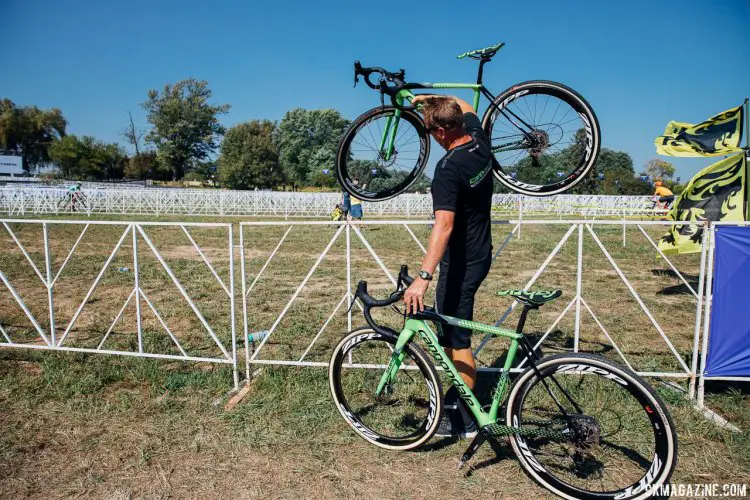
Having someone to handle your heavy lifting can be a huge help during the cyclocross season. 2017 World Cup Waterloo © J. Curtes / Cyclocross Magazine
Why wouldn’t you hire a coach?
Maybe you don’t have enough time to commit or a regular schedule. There are certainly ways for a coach to deal with that, but it may also be disappointing to not get in workouts when you wanted. Some people just like to ride bikes and let that be their level of fitness. Especially if you have a pretty high baseline of fitness you might be comfortable being cat 1 for fun, as they say.
Some people, like me, are just near uncoachable. I’ve ignored so much good advice from so many talented people. One of my number one goals in Crossfit right now is to just shut up and follow advice when my coach gives it to me. If you’re going to have trouble sticking to a series of prescribed workouts and doing what someone else tells you, don’t feel bad about not having a coach.
On the flip side, maybe you just know what works for you. I now have a very solid idea of what works for me in terms of intervals and when to do them. I’ve thought about getting a coach from time to time, for reason number four listed above, but honestly I feel like I know what I’m doing at this point.
The How and Why of Finding a Coach
If you have decided to hire someone, what to do? Start asking around. My number one source of referrals is clients who get fast and then tell their friends who want to get fast too. There’s probably someone in your area that’s known for whatever it is you want to do. Ask around, see what people have to say. Every coach I know of has a two-sentence summary reputation, both good and bad.
Once you’ve figured out a couple of coaches, make some phone calls. I usually spend 15-30 minutes with prospective clients just talking. The truly great clients have a list of questions, but that’s rare. Mostly it’s a get-to-know-you thing. The coaching industry is a client’s market right now. There are so many coaches and racing is on the decline to some extent. Shop around, find someone who is right for you and go with them.
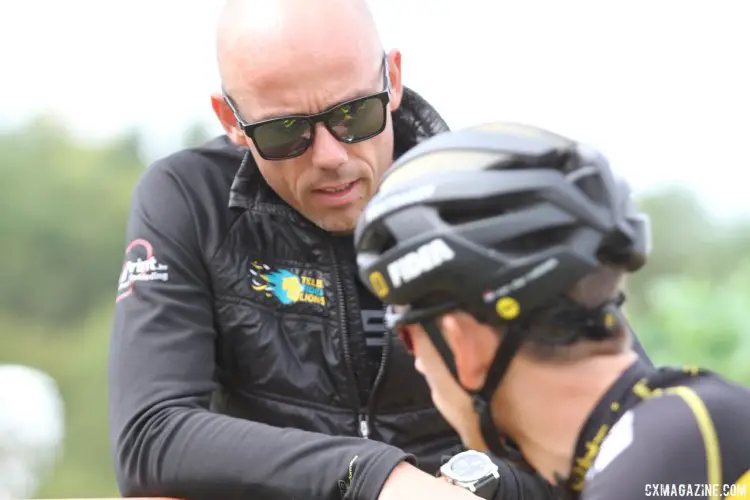
Investing the time to find a good relationship will pay off down the road. 2017 Jingle Cross World Cup © D. Mable / Cyclocross Magazine
To be honest, a lot of my business is getting clients who are dissatisfied with their current coach. That’s fine, it happens. I’ve heard of coaches handing out spreadsheets with incorrect data filled in (i.e., cookie-cutter plans) or people not hearing from their coach the week of big races. Coaches make mistakes (I made a huge one this week!), but sometimes it’s just the way things are.
Never feel like it’s on you to be a better client for your coach. If you’re not getting your needs met it is not your fault. You should have a talk with your coach about it, and if the resolution isn’t satisfactory, you should definitely move on.
If you do chose to move on, I’d suggest letting your coach know exactly why rather than ghosting. The latter doesn’t help your coach improve, and it provides neither of you with closure. It’s also super-awkward if you happen to run into your old coach at a race. I would dearly love to know why I’ve lost some clients, just so I can improve.
Working with a Coach
Let’s say you’ve found a coach for you. What now? Give it some time!
Like any relationship it takes some time to get in a good communication groove. Communication is absolutely key to a good coaching relationship and a power meter doesn’t excuse that. How did it feel making those watts? Does your knee bother you when you make those watts? What’s your self-talk like while making those watts? (By far my favorite is the client who told me in the coaching notes that they blew off the workout to, uh, spend time with their spouse.) That’s all stuff your coach needs to know.
Some people like to text, some email. How and when you communicate takes a while to establish. I typically expect to hear from a new client almost every day for about two weeks. Even with all that, I find it’s much easier to coach a client one year later, when we’ve been through a full cycle of racing and life together. As I said, give it some time once you’re sure it’s the right thing for you.
It’s busy time right now for us coaches. Athletes are thinking about their results and looking to find help to get there. There are many good reasons to hire a coach, and as many reasons you may not need a coach. Think about why you’re hiring one, or what you would like to get out of hiring one. Find a few to interview and see who the best fit is. Coaching is all about a relationship, to which communication is key.
Once you find someone to hire trust them and give it some time. Hopefully it turns out to be a long and fruitful relationship. If at some point it doesn’t don’t feel bad about moving on in order to get your needs met. This is about creating a better you. Good luck with it!
For more coaching and training advice, see our Training Tuesday archives.










